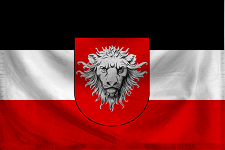

![]() by The Kingdom of Apilonia » Sun May 10, 2020 5:47 pm
by The Kingdom of Apilonia » Sun May 10, 2020 5:47 pm

![]() by The Kingdom of Apilonia » Mon Jun 01, 2020 9:04 am
by The Kingdom of Apilonia » Mon Jun 01, 2020 9:04 am

![]() by The Kingdom of Apilonia » Mon Jun 08, 2020 5:40 am
by The Kingdom of Apilonia » Mon Jun 08, 2020 5:40 am

![]() by The Kingdom of Apilonia » Thu Jun 25, 2020 5:48 pm
by The Kingdom of Apilonia » Thu Jun 25, 2020 5:48 pm

![]() by The Kingdom of Apilonia » Tue Jul 14, 2020 6:19 am
by The Kingdom of Apilonia » Tue Jul 14, 2020 6:19 am

![]() by The Kingdom of Apilonia » Mon Jul 20, 2020 7:38 am
by The Kingdom of Apilonia » Mon Jul 20, 2020 7:38 am

![]() by The Kingdom of Apilonia » Thu Jul 23, 2020 7:32 am
by The Kingdom of Apilonia » Thu Jul 23, 2020 7:32 am

![]() by The Kingdom of Apilonia » Fri Jul 31, 2020 2:40 am
by The Kingdom of Apilonia » Fri Jul 31, 2020 2:40 am

![]() by The Kingdom of Apilonia » Wed Aug 05, 2020 4:45 pm
by The Kingdom of Apilonia » Wed Aug 05, 2020 4:45 pm

![]() by Freistaat-Ostafrika » Sat Aug 08, 2020 12:19 pm
by Freistaat-Ostafrika » Sat Aug 08, 2020 12:19 pm

![]() by The Kingdom of Apilonia » Tue Aug 11, 2020 7:14 am
by The Kingdom of Apilonia » Tue Aug 11, 2020 7:14 am

![]() by The Kingdom of Apilonia » Thu Aug 13, 2020 2:44 am
by The Kingdom of Apilonia » Thu Aug 13, 2020 2:44 am

![]() by The Kingdom of Apilonia » Thu Aug 20, 2020 11:11 am
by The Kingdom of Apilonia » Thu Aug 20, 2020 11:11 am

![]() by The Kingdom of Apilonia » Sat Aug 22, 2020 1:41 am
by The Kingdom of Apilonia » Sat Aug 22, 2020 1:41 am

![]() by Freistaat-Ostafrika » Sat Aug 22, 2020 1:19 pm
by Freistaat-Ostafrika » Sat Aug 22, 2020 1:19 pm
Advertisement
Return to International Incidents
Users browsing this forum: Arevala, British Arzelentaxmacone
Advertisement